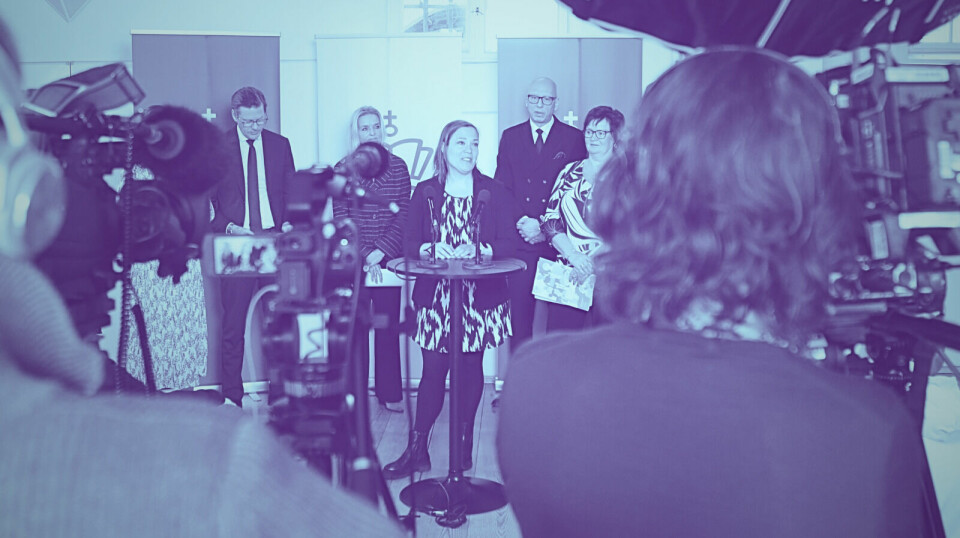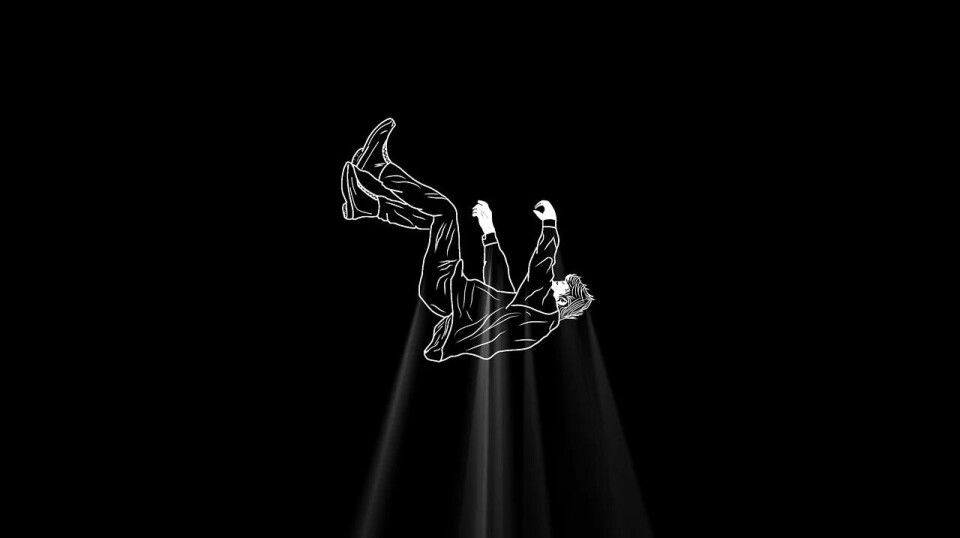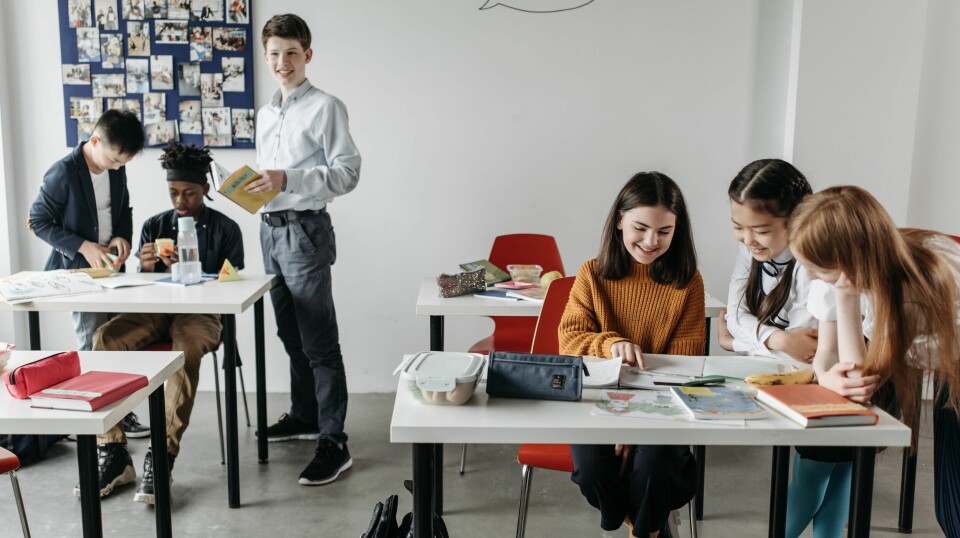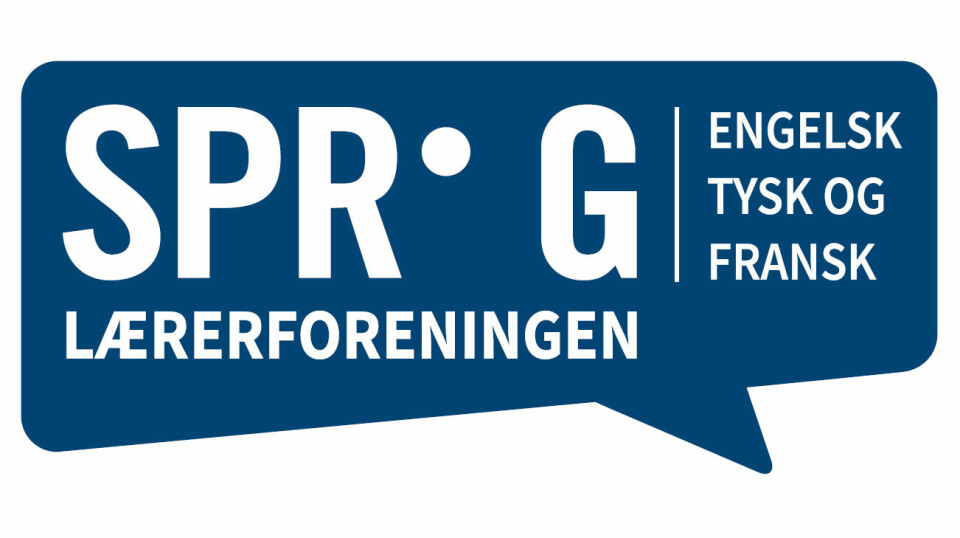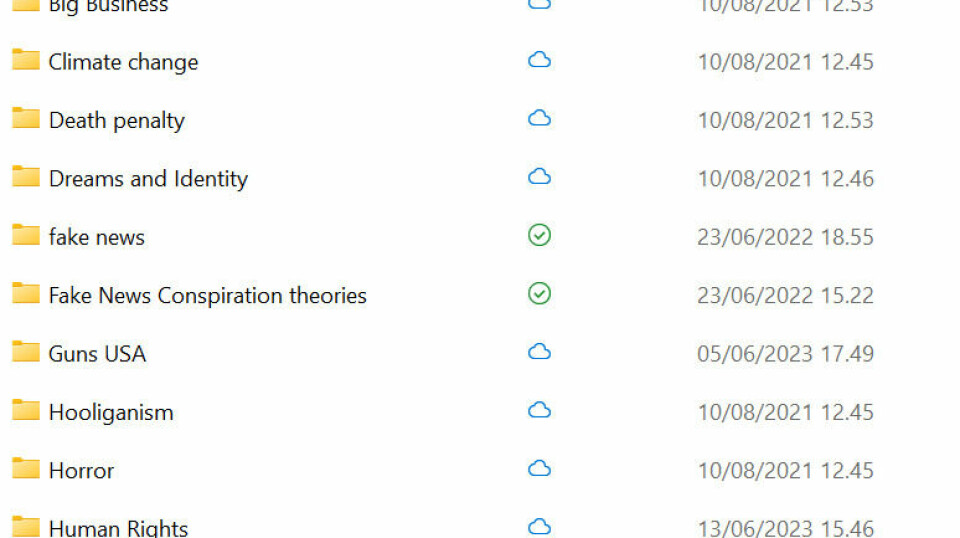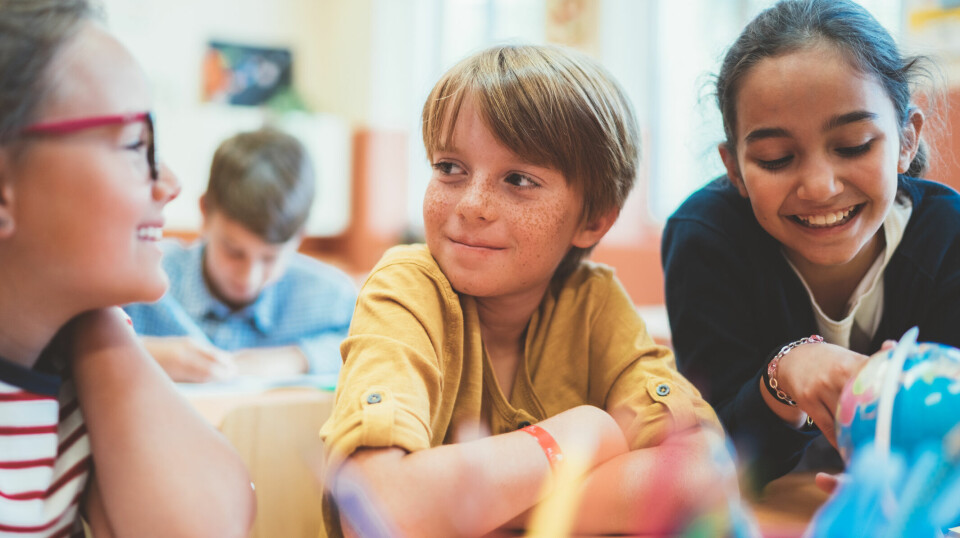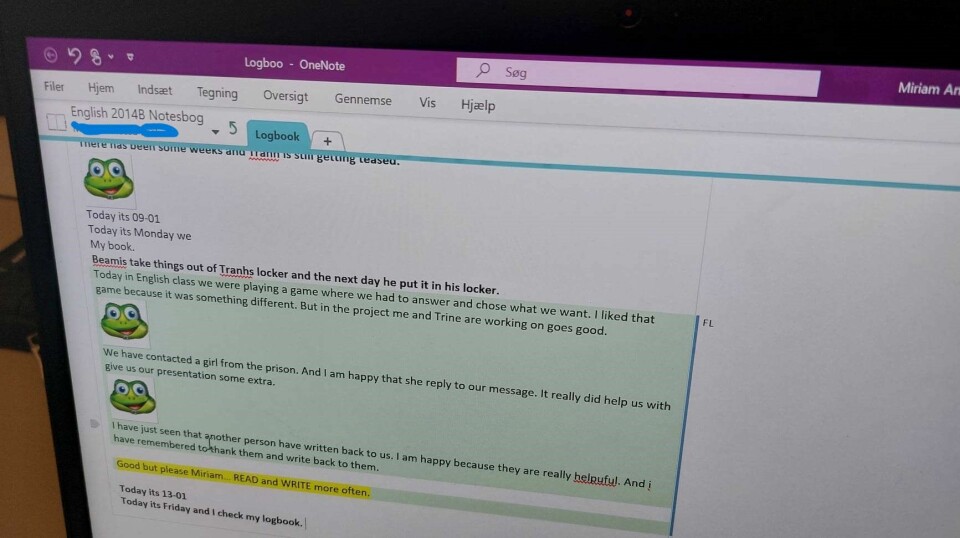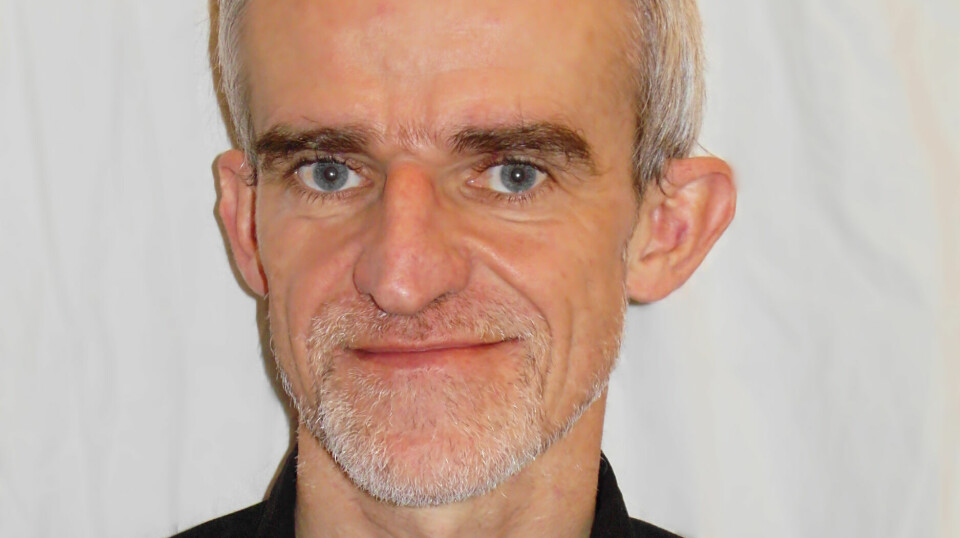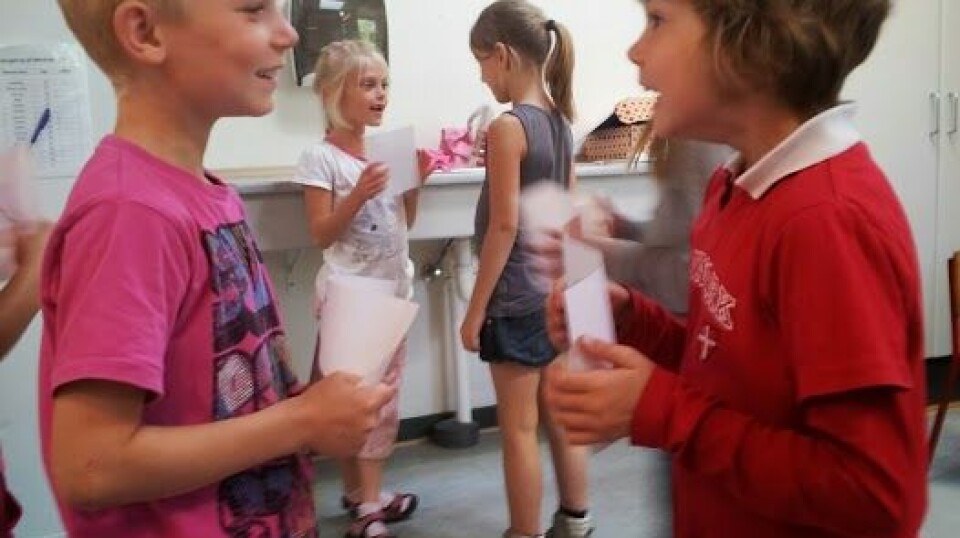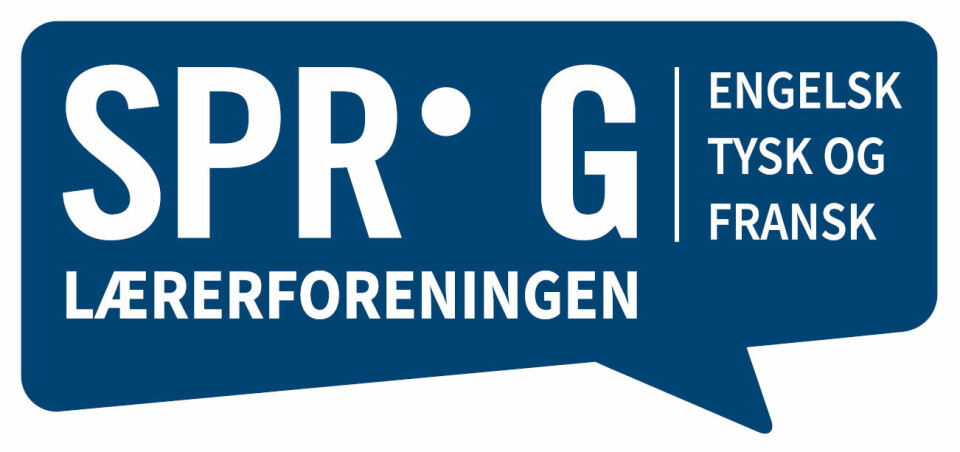
Sproglærerforeningen for engelsk, tysk og fransk
Blog
Authenticity means: “It’s gotta be real!”
This is a reworking of my last blog, but this time in English. I have added more to topic. This blog recounts some of the most exciting and astonishing events in my English lessons. I was genuinely shocked at how simple it was to make contact with extraordinarily interesting people.
It’s got to be real. So much classroom activity is so far removed from reality that it is simply boring. Little kids might accept make-believe worlds but teenagers are feverishly anxious to get their hands on the real world.
I have been practicing autonomy in all of my English lessons for the past 10 years. But what do I mean when I say “autonomy”? In my lessons (with 10 year olds, 12 year old 15/16 year olds) I start by asking, “Okay kids, How to do you want to learn English over the next 6-8 weeks?” Students discuss their ideas together (in English of course). They form groups and dream up all sorts of ideas. I join in these discussions and after about 30-40 minutes they are proposing ideas and projects. I accept most suggestions but some groups might be asked to reconsider whether they will learn enough English with their proposed project? Usually though after about 45 minutes all students have found partners and topics. There are often 1-3 students who decide to work alone and that too is permitted, but I do discourage them from repeatedly working alone, as I believe dialogue is beneficial to learning.
Students have enormous freedom, once they can convince me that their topic will enable them to learn English. The variety of topics is perhaps best illustrated by showing what my two eighth classes and two sixth classes are working with: first 8a
US veterans and PTSD Toby, Seb and Marco
Writing the first few chapters of their first book Clara and Cil
2016 – a year that changed the world Veronica, Penny and Cas
The Gone series of (huge) books, a review of the series Rasmus
Fred and Rose West (real-life monsters) Malle, Sarah and Danny
Child abuse in the USA Celine, Camilla and Laura
Writing the first chapter in their book (Teen Kidnap) Julia, Tilly and Ida
Space… Richard Branson, Voyager/X space…. Åmu
The American civil war Simon and Lucas
And 8b
The swinging 60's Emma, Sarah and Jules
Reading The Scorch Trials Philip
Reading Most Wanted (Goosebumps) + Wimpy Kid Fiona, Ajlin, Anna and Marie
Writing the first chapters in their first book Hawwa and Sara
Reading Gone Niels Christian
Reading Stormbreaker Lukas
KKK Lucas and Ben
Cleveland abduction Isabel, Kevin and Joyce
What is autonomy? (film) Gustav and Mikkel
Writing the first chapters in their first book Noah and Oliver
Project about (the Sweep Series by Cate Tiernan) Tebs
And in my sixth classes (12 year olds) 6b
Clash Royale computer game Lasse, Jo and Nick
What is Easter? Seb
Chevrolet Corvette Emil
Cristiano Ronaldo (including reading the book) Selim, Haaris and Filip
Inanna (viner) Maliha
Selena Gomez and free reading Halima
"Pokemon" and its history Dean and Tom
Ubisoft (computer games producer) Nic and Victor
A crime film Laura L', Amanda and Maliha
Drama... a criminal interrogation Laura K, Laura H, Ida, Ashna and Aastha
Magic Mathias
And 6a
Overwatch computer game Mathias and Aran
Sneakers (sports shoes) Daniel and Lukas
Youtuber Tanner Fox Olli
Sweets, biscuits and desserts in England Tilly, Liv and Jules.
Coca Cola Esther, Deniz and Lucas
Making an English learning game for 2b Augusta
Brands (Lacoste, Nike and Ralph Lauren) André, Hugo and Victor
Reading Zac Power 1. Test Drive 2.Zac's sticky fix and maybe one more book Aysa and Sofie
Reading Bartemaeus My
Cricket Manjosh
As you can see a very diverse and differentiated collection of topics.
My classrooms are open to visitors and researchers. We have over the past two months had a group of researchers from University College Lillebaelt (Denmark), who were specifically interested in the use of digital tools in schools and we have had two separate visits from students studying to be teachers, who had heard/read about autonomy and wanted to see if it really was possible. We have also been visited by a group of teachers who attended one of my autonomy courses. If you, the reader, are interested in visiting my lessons, then please feel free to do so. I would appreciate if you could let me know in advance, but if you turn up unannounced you will in all probability find a warm welcome :-).
Having chosen their topics, students then research (usually digitally) their topic over the following 5-6 weeks. I scaffold groups and they document and evaluate their work, progress and learning in their logbooks (which are either old-fashioned copy books or digital using Office 365 One Note), giving me an insight into their learning and work. Every week I publish a “week plan” on the school’s internet website for each class, which parents can and do access to see what their children are working with and learning. The week plan explains what each student/group is working with, how far we are in our project (timewise) and when projects must be finished. I also regularly write newsletters to parents informing them about our work and learning.
After the allocated 5-6 weeks students present their projects (PowerPoints, film, drama, stories, book reviews etc.) to the class, sharing their learning with their fellow students and they receive feedback from their fellow students and me the teacher on their presentation and their learning.
In my autonomous classrooms my kids are used to choosing what they want to work with, how they want to work, and whom they want to work with to learn English. Usually this means jumping straight onto Google or the BBC website to find information. The products that my students produce are usually very good and in state contolled exams my students have exceptionally good results
Over the past few months I have attended some seminars and lectures on 21st century learning. One of the lectures was by a Danish lecturer called Mikkel Hjorth. One of his points was that schools have a tendency to ask questions to which there is a right answer. Teachers have to pose students questions to which there is no right answer – questions which foster innovation. I know that there is a bit of a jump from that to what I do with my kids, but in an attempt to open up the topics my students chose, and to make the results less predictable, I asked them – as part of their project – to establish contact with a real English-speaking person (via e-mail, tweet, etc.). The results were very interesting.
One group was working with capital punishment in the US. As part of their research I showed them a BBC article about a man who had been released after 20 years on death row. They managed to find him! When he didn’t respond to their e-mail they found his Twitter account and after the third tweet they made contact. Suddenly their project became very real.
Another group was reading about home-schooling in the USA and they managed to get in e-mail contact with an American girl who was home-schooled.
Two other students were fascinated by the idea of some Catholics choosing to become nuns, which, in a secular society like Denmark, is an astounding concept. To begin with they received a standard “thank you for your e-mail” from a Catholic priest, but a week later they got in touch with a young nun who gave very meaningful and personal answers to their questions.
Two boys were ‘discovering’ what Guantanamo is. They received answers to some of their enquiries from a small American grass-roots organisation campaigning for the closure of Guantanamo.
Then, there was a group of low performing boys. They had heard about homeless people in Las Vegas living in service tunnels under the city in appalling conditions. They managed to make contact with a person who had lived in the tunnels for three years and since written a book about his experiences.
Finally and perhaps the most shocking contact was with Gina DeJesus. You may remember an horrific crime in Cleveland Ohio USA that was uncovered in 2013, when police officers stumbled upon three young women, who had been kidnapped for up to 11 years by Ariel Castro. They were subjected to absolutely appalling treatment. My students, inspired by previous success, decided to try to contact the victims and they succeeded! They received an amazing answer from Gina DeJesus which ended “What I would love for all of you to do is get involved. If you see something not right, say something. God Bless, Gina DeJesus”
Below you can read the email ‘conversations’ that my students had with their contacts. The language used in these exchanges has not been modified for grammar or spelling.
Death row
Prisoner: Okay lets do this... Been so busy sorry... Send me your questions
Students: Thank you so much!
We only have one simple question actually.
We would like to know how the enviroment
was in •the death penalty"
Prisoner: It is the most dehumanising feeling. I was just
21 years old and l felt like the whole world
wanted me dead. The on y thing that I coud
think of doing was to learn to love who I was
so that it did not matter it they killed me
I tried to be nice and kind even in hell
Students: Wow, really inspiring, thank you so much for
taking time to answer us. We appreciate it
alot!
_______________________________________________________________
Las Vegas homeless (email exchange – or something like that)
Dear Matthew O’Brien. We’re three boys from Copenhagen, the capital city of Denmark. We’re making an English project about the Las Vegas tunnels, and we’d like to ask you a couple of questions in this email, if it is possible. Our questions: How is the environment and the conditions for the homeless people? Is the problem getting worse or is the population in the tunnels falling?
Dear Matthew O’Brien.
We’re three boys from Copenhagen, the capital city of Denmark. We’re making an English project about the Las Vegas tunnels, and we’d like to ask you a couple of questions in this email, if it is possible.
Our questions: How is the environment and the conditions for the homeless people?
Is the problem getting worse or is the population in the tunnels falling?
Greetings from a cold but sunny Copenhagen.
Can you tell me a little more about your project? Matt Dear Matthew O’Brien. First of all, thank you for answering. We are making a movie. The movie contains informations about Las Vegas itself, and we want to go into depth with the tunnels, as it is our main topic. So we believed it could be absolutely fantastic to get an interview from a specialist, and we want to know about your experience with the homeless people. Greetings, Tobias, Simon and Sebastian. The environment in the tunnels is pretty bleak. They are dark and, in some cases, dank. However, the people down there prefer the tunnels to living homeless aboveground in Vegas, because of the heat, the cops and other issues like that. (To get a better idea of what it is like in the tunnels, read my book Beneath the Neon or just Google the subject.) The population in the tunnels a bit smaller, I think. More organizations, like US Vets and HELP of Southern Nevada and my community project Shine a Light, are getting involved in the issue and helping. Of course, Las Vegas doesn't have the resources to help all the people who live in the drains, but they have more options than they did 10 years ago, I think. Matt Dear Matthew O’Brien We’re very thankful for your great answer. Greetings,
The environment in the tunnels is pretty bleak. They are dark and, in some cases, dank. However, the people down there prefer the tunnels to living homeless aboveground in Vegas, because of the heat, the cops and other issues like that. (To get a better idea of what it is like in the tunnels, read my book Beneath the Neon or just Google the subject.)
The population in the tunnels a bit smaller, I think. More organizations, like US Vets and HELP of Southern Nevada and my community project Shine a Light, are getting involved in the issue and helping. Of course, Las Vegas doesn't have the resources to help all the people who live in the drains, but they have more options than they did 10 years ago, I think.
Matt
Tobias, Simon and Sebastian
Catholic Nuns
I hope it isn't too late to respond to your three questions about nuns for your school project. 1. How did your family react when you said you wanted to be a nun?
My family is not Catholic, and I became a Catholic on my own at the age of 16. My parents are of Protestant backgrounds. So, when I first announced that I was discerning becoming a nun they really did not understand at all. The only nuns they knew of were those in the movies! They thought that it was a teenage phase and would pass with time, but after I continued to visit convents and monasteries over a few years time they could see that I was serious. When I first entered the monastery they were very upset and could not understand what I was doing at all. However, after many visits to see me happily living as a nun, and meeting my religious sisters they have grown to accept and to some extent even support my path in life. They still say that they don't understand, but that they are just happy that I am living happily.2. Why did you choose a life without a family and children? I am a very family-oriented person who absolutely loves children, so sacrificing the opportunity to have my own family was difficult for me. However, I have always wanted to live for something much greater than myself and have always been consoled by remembering that I am seeking to live entirely for God and that my life of prayer has a positive effect on humanity. Being free of taking care of a family allows that energy to be channeled into prayer and the spiritual life. 3. How did you get the idea of becoming a nun? The idea first occurred to me when I was about 13 and I was reading about nuns and saints. I realized that we human beings were created "to know, love, and serve God" and that was exactly what I wanted to do with my life. I wanted
2. Why did you choose a life without a family and children? I am a very family-oriented person who absolutely loves children, so sacrificing the opportunity to have my own family was difficult for me. However, I have always wanted to live for something much greater than myself and have always been consoled by remembering that I am seeking to live entirely for God and that my life of prayer has a positive effect on humanity. Being free of taking care of a family allows that energy to be channeled into prayer and the spiritual life.
3. How did you get the idea of becoming a nun? The idea first occurred to me when I was about 13 and I was reading about nuns and saints. I realized that we human beings were created "to know, love, and serve God" and that was exactly what I wanted to do with my life. I wanted to live entirely for God, and the saints that I was reading about had done that by living in convents and monasteries.
to live entirely for God, and the saints that I was reading about had done that by living in convents and monasteries. Many blessings to you in your class project, Sister Mary Therese
Home Schooling
My name is Camilla and Im 14 years old and I live in Denmark. I have your e-mail from Toby Lauren Burgess from Facebook. I my class in my school (english lessons) we have a project about homeschooling and I have some questions and hope you will reply to me :-) A) Do you like your homeschooling B) What is the best thing about homeschooling C) Why dit you/or your parents chose homeschooling for you Thank you so much if you will reply to me. Kind regards Camilla Kirketerp from Denmark
Hello I'm Ireland. I'm 11 and I would be happy to answer your questions . A) Do you like your homeschooling? Of course! It's really fun. B) What is the best thing about homeschooling? Well personally, I like it because you can spend more time with your family and I
My name is Camilla and Im 14 years old and I live in Denmark. I have your e-mail from Toby Lauren Burgess from Facebook. I my class in my school (english lessons) we have a project about homeschooling and I have some questions and hope you will reply to me :-)
A) Do you like your homeschooling B) What is the best thing about homeschooling C) Why dit you/or your parents chose homeschooling for you
Thank you so much if you will reply to me.
Kind regards Camilla Kirketerp from Denmark
get to learn things I want to learn instead of what I am being told to.
C) Why dit you/or your parents chose homeschooling for you? At first it was mainly to do with my brother. He didn't like leaving my mothers side. So we started doing homeschool. Right after that, we found out we both had types of disabilities, such as Dyslexia and Tourettes, which made it easier for us to do our learning at home. Thank you! I hope this helps.
_______________________________________________________________
Guantanomo Bay
Hello my name is Marco Hollensted and I am 14 years old. Im a student from a school called Aadalens Privatskole in Denamark, in a little city called Ishoej near Copenhagen. Me and my good friend Lucas are making a school project about Guantanamo, and we found your web page while we were looking for a new topic to write about. And then we thought your web page was pretty cool and we like what you stand for. But we really want to know how you came up with the idea and how many people started the group and how many people support you?
This is very important for our project and I am 100% sure that it will make our project very good and interesting with your help!
Best wishes from Denmark
Marco Hollensted and Lucas Sebastian Hansen
Hi Marco and Lucas,
Good to hear from you. Thanks for your interest.
The campaign was founded by myself (Andy Worthington) and Tom Wilner. I'm a journalist and human rights activist, based in London, and Tom's an attorney in Washington, D.C. who helped represent the Guantanamo prisoners in their Supreme Court cases in the US in 2004 and 2008.
We reach out to tens of thousands of supporters through the website and our social media. I wish it was more, but it's difficult to get people as interested in Guantanamo as they should be. Americans were told it held "the worst of the worst" by the Bush administration, and they believed it, whereas the truth was something completely different.
Few of the 779 men held by the US military at Guantanamo since the prison opened in January 2002 have genuinely been accused of involvement in terrorism. Most were either foot soldiers for Taliban or innocent people seized by mistake - at a time when generous bounty payments made by the US were widespread, and most of the prisoners were not seized by the US, but by their Afghan and Pakistani allies.
The handful of men accused of terrorism should have been put on trial in federal court and the soldiers should have been held as prisoners of war protected by the Geneva Conventions, but everyone was, instead, held as "enemy combatants" without any rights whatsoever, and, without rights, it was also easy for the US to decide that it wanted to torture them when they didn't provide themAfghan and Pakistani allies. The handful of men accused of terrorism should have been put on trial in federal court and the soldiers should have been held as prisoners of war protected by the Geneva Conventions, but everyone was, instead, held as "enemy combatants" without any rights whatsoever, and, without rights, it was also easy for the US to decide that it wanted to torture them when they didn't provide them with the information they wanted - largely because they knew nothing of any value. I hope this helps. Best, Andy Hello Andy that was a very big help for our project we will just say thank you for writting back to that means a lot for our project and us. We think that how your group has inproved is very cool. Best, Marco and Lucas with the information they wanted - largely because they knew nothing of any value.
I hope this helps.
Best,
Andy
Hello Andy that was a very big help for our project we will just say thank you for writting back to that means a lot for our project and us. We think that how your group has inproved is very cool.
Best,
Marco and Lucas
The Cleveland abductions
Thank you so much for reaching out to me. I am humbled and honored you are doing a project on The Cleveland Abduction. My response to your questions are simple: I'm moving forward with my life. Everyday is different and I'm grateful for the life I'm living now. To live my life looking in the rear view mirror doesn't feel healthy to me. I hope you understand that. I am so happy to be amongst my family and friends. It makes me so happy that there are people out there like you whom are interested in this case. What I would love for all of you to do is get involved. If you see something not right, say something. God Bless, Gina DeJesus”
Some groups did not receive answers, but to be honest, I was shocked that so many of my students (about 50%) were so successful and I think they too were very surprised. The result was that 14-year-old kids suddenly felt that the real world was taking them very seriously. Need I say the motivational value was enormous? My students left the boring confinement of the classroom via their computers. Their English learning suddenly became very ‘real’.
PS all parties have given permission to use their names and correspondence.





